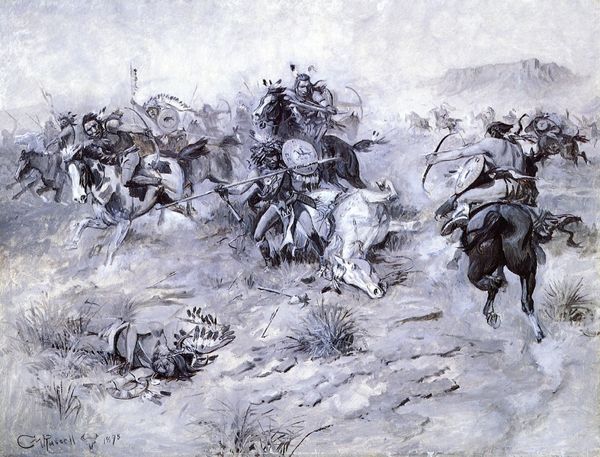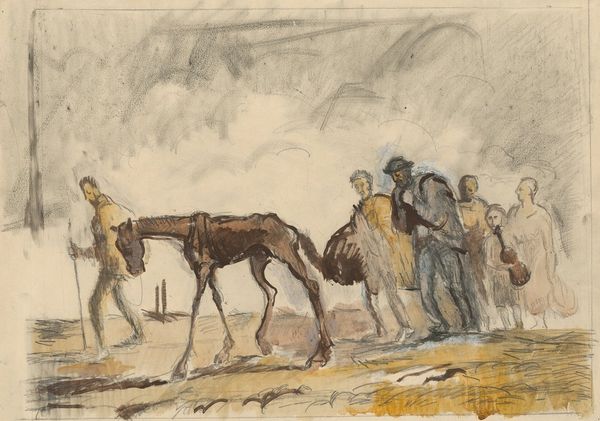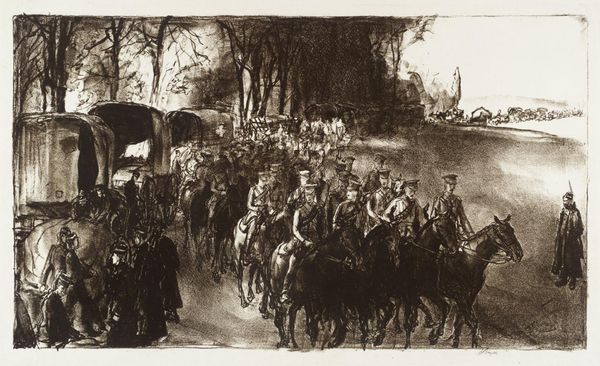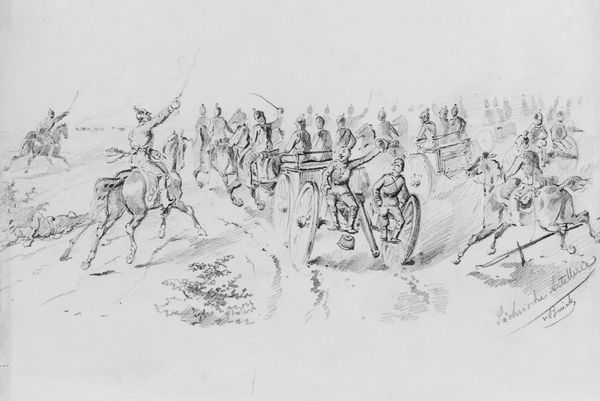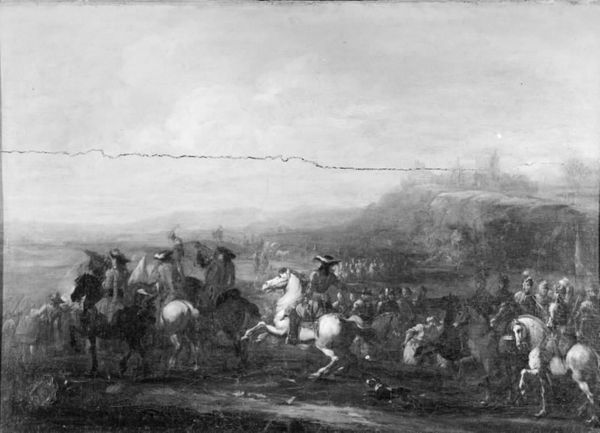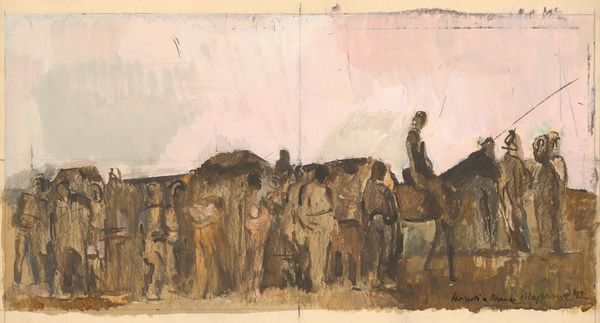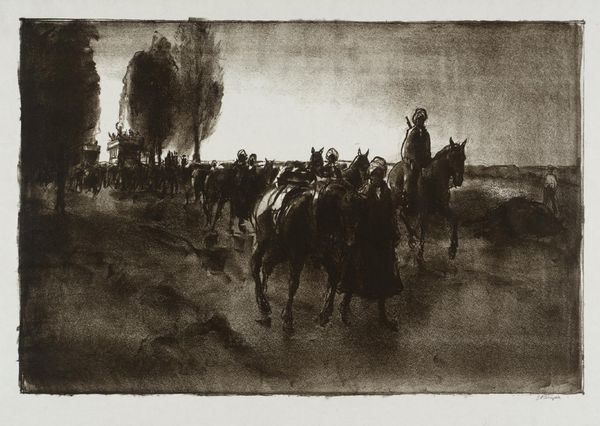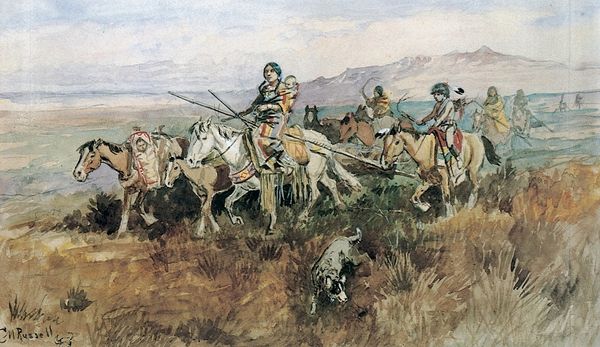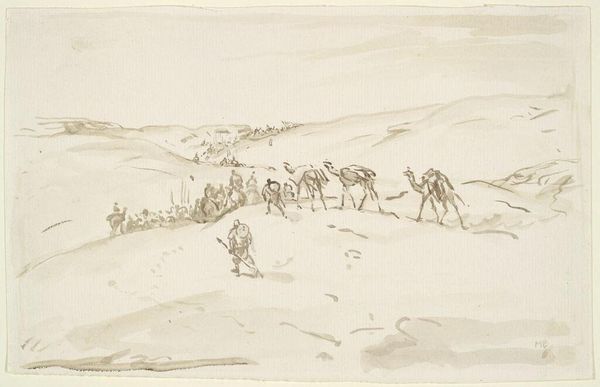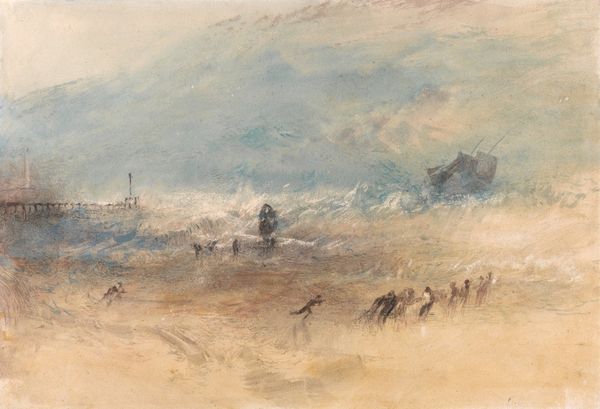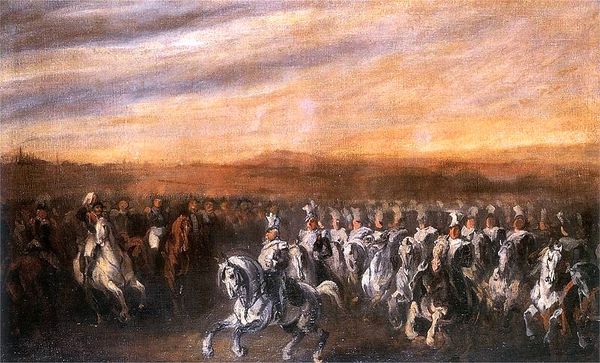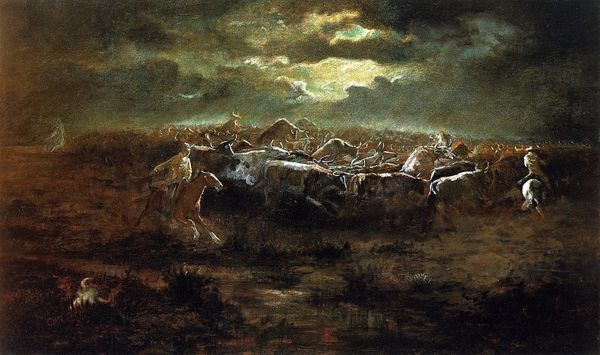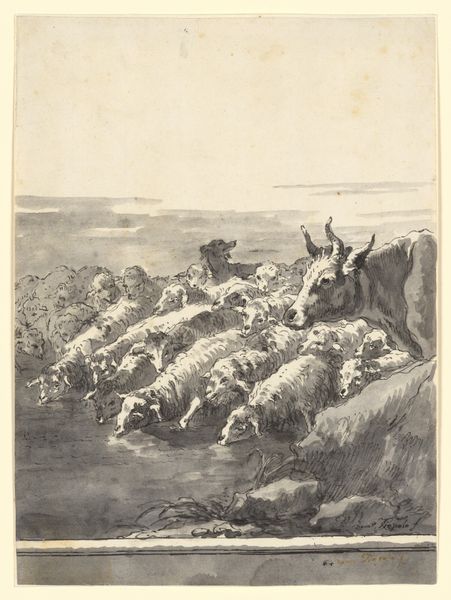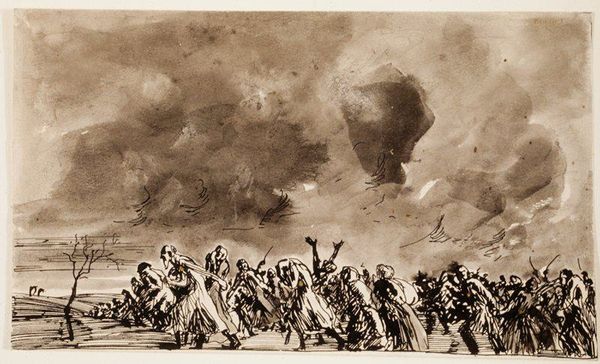
#
abstract painting
#
possibly oil pastel
#
fluid art
#
acrylic on canvas
#
underpainting
#
watercolour bleed
#
watercolour illustration
#
mixed medium
#
mixed media
#
watercolor
Copyright: Public domain
Curator: What strikes you most about this artwork? I find Charles M. Russell's "The Roundup," painted in 1918, particularly poignant, considering its historical context of westward expansion and the displacement of Indigenous communities. The use of watercolour on paper lends a unique sense of fluidity to the scene, wouldn’t you agree? Editor: You know, immediately, it feels like a faded dream, or maybe a dusty memory clinging to the horizon. All these muted grays and browns make the whole scene appear otherworldly, you know, like a mirage shimmering on the prairie. Curator: Indeed. And in viewing the scene through that muted, almost monochromatic palette, it becomes a historical echo resonating across a transformed landscape. Russell was invested in constructing a Western identity narrative during the turn of the century. Do you sense that ideal in the image? Editor: It is hard to know the extent to which we may now romanticize that "Wild West" now. I mean, it gives the impression of ruggedness. Even the softness of the watercolor can’t quite hide it. And these shadows beneath the riders, don't you feel they're weighed down by the sheer gravity of manifest destiny? The riders on horseback and the herd, stretching on in a long dusty line...it whispers tales of freedom, perhaps an illusive freedom. Curator: It is interesting that you point this out. From a socio-political perspective, the painting may reinforce settler colonial ideology. The “Roundup” as depicted suggests mastery over land and animals. Do we perceive how it overshadows the violent displacement of Indigenous communities from these same lands? I'm also wondering, can we discuss his style of art from this perspective? Editor: Oof. Heavy stuff! But I agree, once you notice the undercurrent of subjugation and cultural suppression it alters how the landscape is perceived in the painting. All of a sudden the broad sky feels...smaller. It loses something... Maybe the "Wild West" was wild in a far darker sense than the myth admits. Thanks for that perspective. It leaves me with much to ponder! Curator: Exactly! Let us both consider the myth that the painting is reinforcing. Perhaps what appears to be a celebration of freedom and self-determination contains darker reflections and hidden truths?
Comments
No comments
Be the first to comment and join the conversation on the ultimate creative platform.
